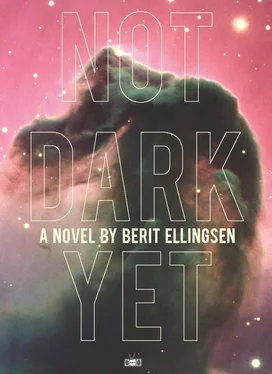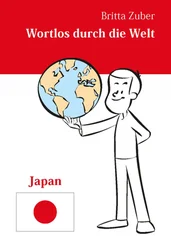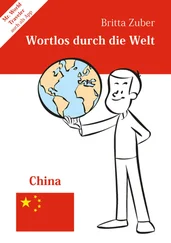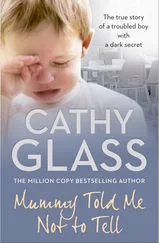The next time his eyes fluttered open one side of him was comfortable, while the other was cold. But the warmth that was there made the chill bearable and he thought he might not freeze to death after all. The sun had long since crept behind the mountains, yet the dusk was almost as blue and soft as it had been in the city in the summer. A wall of eyes were watching him, black, shiny orbs above short, stout beaks, belonging to small feathered bodies. He blinked. He must be dreaming. A flock of white and brown sparrows were sitting on his chest and belly and limbs, covering him like a blanket. There must be at least a hundred of them, if not a hundred and fifty. When he lifted his head to look more closely at the birds they didn’t fly away as he thought they would, but rocked and swayed with his motions while they clutched his clothes and skin and calmly took him in.
Then the gray shingles and the black plastic gutter that edged the roof of the cabin were angled above him. He smelled like he did after he had killed Kaye’s owl, the earthy, coppery fragrance of unconcealed perspiration and sudden, violent death.
“How lucky we found you,” someone said nearby. A face he recognized as one of his neighbors was looking down at him, together with several others. He searched for Eloise and Mark, but they were not there.
“And lucky we hadn’t started manuring the fields yet,” another neighbor said and laughed.
“WE SAW A LARGE FLOCK OF SPARROWS BANK IN the air and had to go see what it was,” the neighbor closest to him said, whose name he couldn’t recall.
“You thought it might be someone trying to beat us to the sowing,” another one said.
“Shush,” the first neighbor replied.
“When we got closer the birds took to the air and then we saw you on the ground.”
“We thought you were dead!”
“Shhh!”
He looked at them. “Thank you for the help,” he said.
“Are you all right? Do you need help to get inside?”
“No,” he said. “I need to rinse off first.”
“You probably shouldn’t lie on the ground this time of year, it’s too cold.”
“And definitely not after we’ve sown or when the crops have started to grow!”
They helped him up, said goodbye, then retreated to the path that wound past the cabin and down to Mark and Eloise’s farm. Now he saw they were all wearing tall rubber boots and fluorescent-colored vests, and that one of them had what in the moonlit darkness looked like the barrel of a shotgun hanging over her arm. The neighbors mounted two four-wheeled motorbikes and drove off in a spray of sludge and soil and noise, leaving a deep hush behind them.
He stood, switched on the six-sided glass lantern in the corner of the deck’s railing. The solar-powered light flickered a little, then cast a weak yet steady shine over the mud-dappled planks. Almost immediately the flitting shadows of mosquitoes and other flying insects appeared in the corona from the lamp.
He was shivering so hard it was difficult to stand upright and he had to clench his jaws to keep them from clattering. He peered down his torso, passed his quivering hands over his ears and neck and throat, and stretched his tensed limbs to look for ticks and other pests that may have attached themselves from the soil. From his memory the scent of sand and sun lotion appeared, from days on the beach by the artificial lake in the city when he ignored his mother’s calls from the shore, staying in the water until his lips were purple and his body shook.
He smiled at the recollection, shuffled over to the tap on the wall and pushed one end of the rubber hose that lay coiled beneath it onto the spigot. Then he attached the other end to the shower head that hung on a hook high above the tap. When he stepped into the spray the water was so cold it made him gasp and intensified his shivering. He rinsed his hair and skin as well as the shaking allowed, turned the faucet off, and hurried inside, leaving his muddied trainers, running pants, and underwear like shed skin on the deck.
He was shaking too hard to light the firewood in the hearth. Instead he pulled all his clothes out of the backpack until he found the beach towel he had brought from the city. When his skin was dry and his hair dripping less, he wrapped the metal foil emergency blanket from his first aid kit around himself and curled up in the sleeping bag, pulling its broad top over his head. There, he shivered for hours until he fell asleep without noticing.
The next morning he went outside in the cold sunlight to rinse the clothes on the deck in the improvised shower and hang them to dry over the banister. Inside he rolled the clothes he had pulled out up again and stuffed them into the backpack. Then he found Eloise and Mark’s phone number in the project folder and invited them over.
This time, when Mark and Eloise arrived with the other neighbors and squashed together on the sofa, he had clean cups and teaspoons, hot tea, and a bowl with lumps of refined sugar waiting for them.
“I thought you only fertilized in the spring,” he said when the small talk was out of the way.
“Usually,” Eloise said. “But the soil is so virgin we thought we’d give it a boost by fertilizing it lightly and turn it once more before the frost, to prepare it for the spring.”
“You must till the land again then?” he said.
“Yes,” Mark said, “because there’s always frost in the winter, even if it doesn’t snow.”
“Does it snow much here?”
“Lots, or it used to. Now we’re lucky if we have a week of white in the winter.”
“It’s made the animals confused, bears come out of their dens in January and butterflies start swarming in March. The rabbits have almost disappeared because their white coat now gives them away instead of camouflaging them.”
“You snared several mottled rabbits last December, didn’t you?”
The neighbor who had done this nodded. “They looked like they didn’t know whether it was winter or spring.”
“Do you really think wheat will grow here?” he said. “At this latitude and elevation?”
The tea cups clinked, lowered almost simultaneously.
“Haven’t you read the papers?” Eloise said. “We had meteorologists at the local university compare the temperatures of the past decades with the newest projections from climate scientists and plant experts, proper research, mind you. We even received a grant from the ministry for agriculture as a special project.”
So that’s where the funding for the seeds and the fertilizer and the four-wheeled motorbikes came from. He looked at them. “And you also made personal investments into this?”
“Where did you hear that?”
“It’s a small town,” he lied. It was worth a try, there had to be lots of gossip around about the project.
Mark nodded. “Most of us have put our savings into it, we refinanced our farm. We’ll be all right.”
“Well worth the labor to get away from lumber and wood pulp production if you ask me,” Eloise said. “Those are no longer viable.”
“No pain, no gain?” he said.
“No risk, no gain,” Eloise replied. “Those who are not too risk adverse may find the changes in weather profitable and opening up new possibilities. And why not, it’s our moor, our land.”
He nodded and looked down into his tea. “But what if the weather changes again?”
“How? And to what?” Eloise nearly yelled.
HE DREAMED HE WAS GIVEN A KNIFE FROM HIS father’s country, a traditionally crafted dagger with the short handle wrapped tightly in ordered loops of black cotton, the bronze silhouette of a dragon spiraling among clouds secured inside it. The knife’s guard was a thin disc of steel with an intricate, curling pattern of negative space.
Читать дальше












